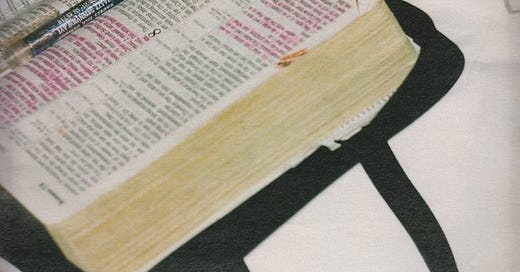Why the Ethiopian Bible Makes More Sense to Me Than Western Christianity
For a long time, I couldn’t shake this feeling, this disconnect between the Christianity I was taught and the one I felt in my spirit. The more I studied, the more questions surfaced. Why were certain books missing? Who decided what was “canon” and what wasn’t? And why does Western Christianity often feel like a diluted, repackaged version of something much older, much deeper?
Then I discovered the Ethiopian Bible, and everything started making sense.
The Bible Didn’t Start in Europe
Let’s start with a fact that too many people ignore: Christianity didn’t originate in Rome, England, or America. It was birthed in the Middle East and Africa. Yet, the version of the Bible that most of us grew up with has been heavily filtered through European councils, colonial interpretations, and political agendas.
The Ethiopian Orthodox Church, on the other hand, has preserved the oldest and most complete version of the Bible, with 88 books instead of 66. While the Western world removed texts over centuries, Ethiopia never erased its history. That alone made me pause, why was I following a version of faith that had been edited down to fit a specific narrative?
Who Gave the West Authority to Edit God’s Word?
Here’s the truth: the Bible wasn’t canonized in one divine moment, it was curated by men.
• The Council of Nicaea (325 AD): Roman emperors and bishops decided what would be “official.”
• The Council of Trent (1546 AD): The Catholic Church finalized the 66 books most of us know today.
• Meanwhile, Ethiopia had been preserving the full text since the 4th century, untouched by Western interference.
This wasn’t just about books being “left out.” This was a deliberate shaping of doctrine, choosing what people would believe and what they wouldn’t. That’s when I realized: I never questioned what was missing, because I was never taught to.
The Books They Didn’t Want Us to Read
Some of the texts in the Ethiopian Bible, like the Book of Jubilees, Enoch, and Baruch, provide powerful spiritual insights that completely shift the way we understand biblical history.
• The Book of Enoch describes fallen angels and their influence on humanity, why was this removed, when even the Book of Jude references it?
• The Book of Jubilees tells a deeper story of early biblical figures and spiritual warfare, who decided this knowledge wasn’t necessary?
• The Book of Baruch expands on the struggles of Israel in exile, why was this erased from most Bibles?
Each of these books adds depth to scripture, yet Western Christianity told me they were “uninspired” or “heretical.” But inspired by whose standard?
Western Christianity Is a Watered Down Version
Once I saw how faith had been repackaged to fit European theology, I couldn’t unsee it. The White Jesus, the colonial interpretations, the doctrines that made people obedient rather than empowered—it was all part of a system designed to control, not liberate.
The Ethiopian Bible, on the other hand, has been preserved outside of Western influence, holding onto the raw, unedited truth of early Christianity. It makes sense why it feels more authentic, more connected to the original faith.
Reclaiming a Faith That Was Never Theirs to Control
I don’t align with the Ethiopian Bible because it’s trendy or controversial, I align with it because it makes sense.
• It wasn’t manipulated by European councils or Roman emperors.
• It wasn’t shaped by colonial missionaries.
• It wasn’t rewritten to justify oppression and control.
It’s faith in its most original form, preserved in a place that wasn’t interested in rebranding Christianity for power.
If the oldest Christian nation on Earth still holds to this version of scripture, why would I trust the one that’s been cut, re-edited, and mass-produced to fit a Western agenda?
I’m not rejecting the Bible, I’m seeking the full story.
And maybe you should too.
Have you ever questioned why certain books are missing from the Bible? What’s your take on the Ethiopian Orthodox Canon? Drop your thoughts in the comments, I’d love to hear your perspective.



